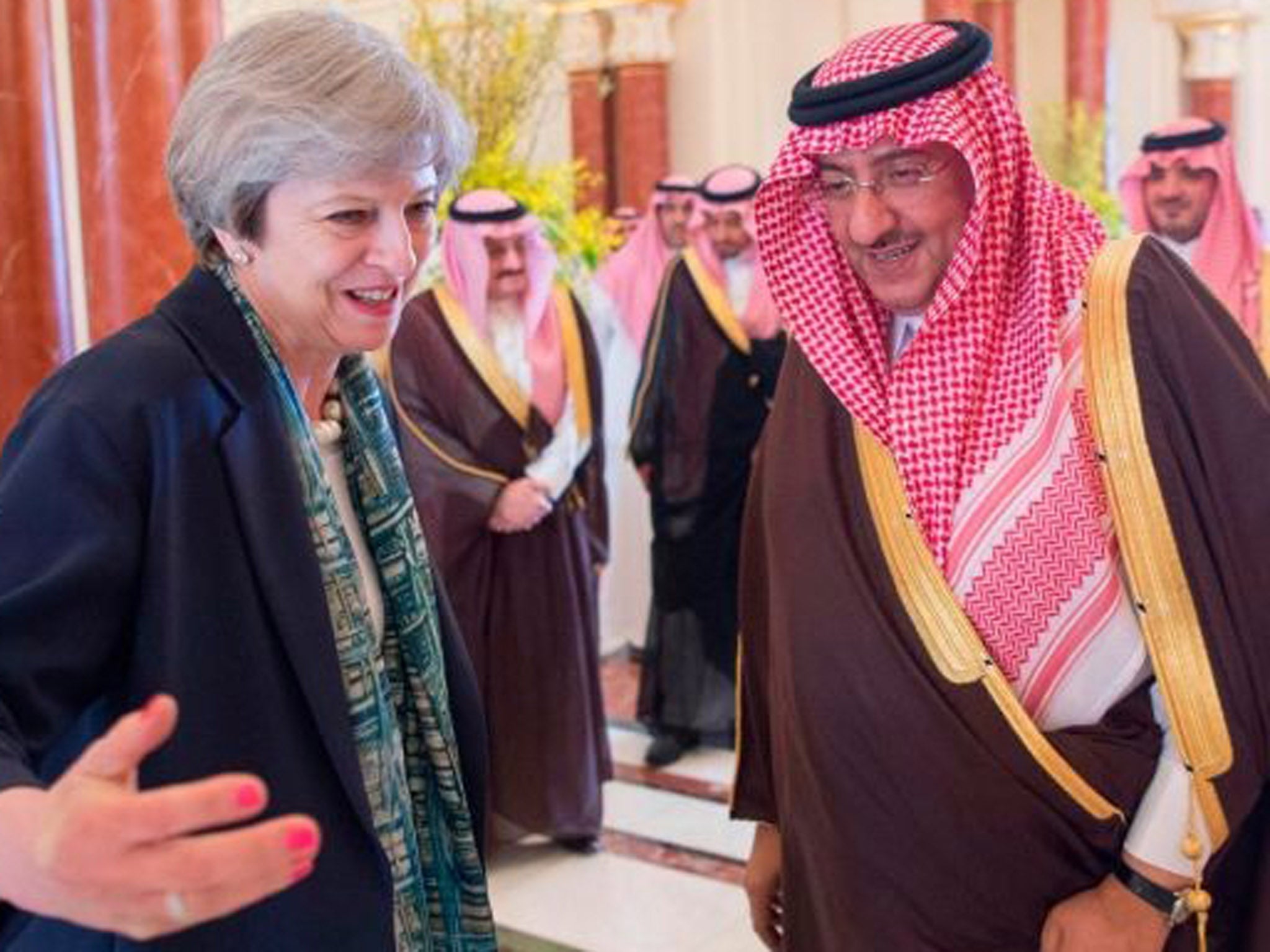Theresa May meets Saudi Crown Prince without a headscarf
PM is in Riyadh for two days of trade talks and wants to be a role model for young Saudi girls

Your support helps us to tell the story
This election is still a dead heat, according to most polls. In a fight with such wafer-thin margins, we need reporters on the ground talking to the people Trump and Harris are courting. Your support allows us to keep sending journalists to the story.
The Independent is trusted by 27 million Americans from across the entire political spectrum every month. Unlike many other quality news outlets, we choose not to lock you out of our reporting and analysis with paywalls. But quality journalism must still be paid for.
Help us keep bring these critical stories to light. Your support makes all the difference.
Theresa May met the Crown Prince of Saudi Arabia without wearing a headscarf, in defiance of the kingdom’s strict rules on female dress.
The deeply conservative theocracy imposes strict controls on its female citizens, requiring them to wear long, black cloaks known as abayas with a hijab or niqab to cover their heads in public places.
It also heavily restricts women’s rights and freedom of movement with laws requiring adult woman to have a male guardian and a ban on women driving.
The Foreign Office advises women travelling to the country to cover their hair and wear loose fitting clothes. But Ms May followed in the footsteps of Michelle Obama and Hillary Clinton when she stepped out bare-headed and in trouser suit to meet Crown Prince Muhammad bin Nayef.
There had been intense speculation ahead of the visit to strengthen trade links over whether Ms May would conform to the kingdom’s strict rules, but she was seen without a headscarf as her plane touched down in Riyadh on Tuesday.
Ms May said she wanted to act as a role model to oppressed women in Saudi Arabia by showing them “what women can achieve”.
She said: "It's important for me as a woman leader and as leader of the Government of the United Kingdom to maintain the relationships that are important to us as a country, for our security, and our trade for the future.
"But I hope also that people see me as a woman leader, will see what women can achieve and how women can be in significant positions."
Following the meeting with Crown Prince Muhammad, Ms May announced sweeping reforms which will revolutionise the Saudi economy with Britain’s help.
The Saudi royal family is attempting to move the kingdom away from its traditional dependence on oil following a collapse in the price per barrel over the last few years.
It plans to increase the number of women in work as well as boosting access to its culture.
Last month, King Salman bin Abdul-aziz al Saud toured several Asian nations including Japan, Indonesia and China to establish trade links.
The visit, along with the UK’s long-standing relationship with Saudi Arabia, has drawn heavy criticism from human rights campaigners.
Activists have condemned Saudi Arabia’s poor human rights record within the country as well as its military intervention in Yemen – using UK-made arms.
The two-year conflict has so far left 7,600 dead and 42,000 injured - mostly in Saudi-led air strikes - with approximately 70 per cent of the country needing humanitarian aid.
Subscribe to Independent Premium to bookmark this article
Want to bookmark your favourite articles and stories to read or reference later? Start your Independent Premium subscription today.
Join our commenting forum
Join thought-provoking conversations, follow other Independent readers and see their replies
Comments